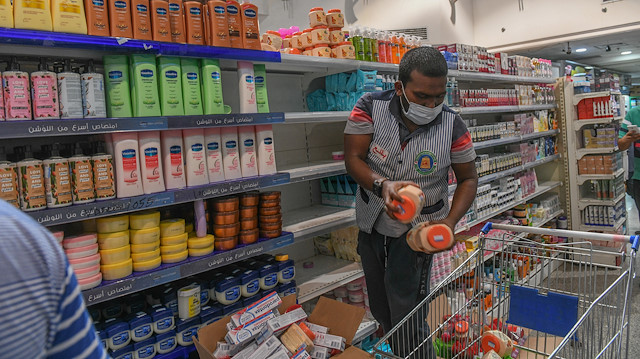
French President Emmanuel Macron attacked Islam and the Muslim community, accusing Muslims of "separatism"
Several Arab trade groups have announced their boycott of French products in response to incitements against the Islamic religion and insulting statements against Prophet Muhammad.
Arab activists also launched several social media campaigns for the boycott of all French products, using several hashtags as (#boycottfrance #boycott_French_products #ProphetMuhammad).
In Kuwait, the Alnaeem Cooperative Society, a large series of supermarkets in the Gulf state, said it will remove all French products from the shelves in protest of the French insulting statements against Islam and the prophet.
A similar move was taken by several trade groups such as the Suburb Afternoon Association, Eqaila Cooperative Society and Saad Al Abdallah City Cooperative Society. The three groups published photos showing French products being removed from their shelves.
In Qatar, Alwajba Dairy Company and Almeera Consumer Goods Company said they will boycott the French products and will provide other alternatives.
Qatar University also joined the boycott campaign, announcing that it decided to postpone the French Cultural Week in protest of the anti-Islam insults.
"Any denigration or violation of the Islamic beliefs, sanctities and symbols are absolutely rejected,” the university said in a statement. “These insults harm the universal human values and the high ethical principles of all societies,” it added on Twitter.
In recent weeks, French President Emmanuel Macron attacked Islam and the Muslim community, accusing Muslims of "separatism". He described Islam as a “a religion in crisis all over the world".
This coincided with a provocative move by Charlie Hebdo, a left-wing French magazine infamous for publishing anti-Islamic caricatures, which have drawn widespread anger and outrage across the Muslim world.
The caricatures were first published in 2006 by a Danish newspaper Jylllands Posten, sparking a wave of protests.


